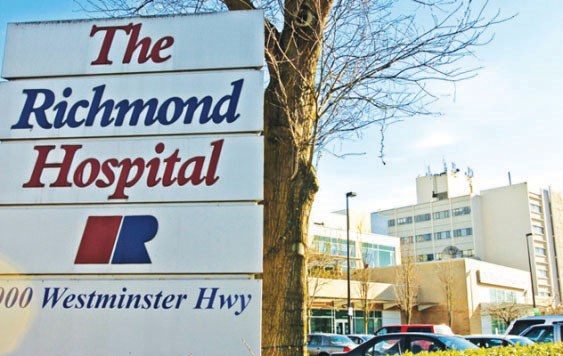A Richmond father is speaking out about what he likened to a revolving door of mental health care locally, following a study by the Canadian Institute for Health Information (CIHI) rating Richmond Hospital with the highest percentage of repeat hospital stays in B.C. for patients with mental illness.
Sam, not his real name for reasons of privacy, told the Richmond News, his son has averaged three to four visits to Richmond Hospital annually since his diagnosis for schizophrenia in 2001.
"That's too many times. That's once every three to four months," Sam said.
The CIHI's study pegged the rate of repeat hospital stays for mental illness in Richmond at 19 per cent for patients making at least three visits annually.
The provincial average is 13.2 per cent, while nationally the rate is 10.9 per cent.
According to Statistics Canada, the CIHI collects and analyzes information on health and health care in Canada and makes it publicly available.
Canada's federal, provincial and territorial governments created CIHI as a not-for-profit, independent organization dedicated to forging a common approach to Canadian health information, and provide timely, accurate and comparable information.
Sam said he believes inadequate follow up care for mental health patients is the reason for the high percentage of repeat visits locally.
"Essentially, what happens is you visit the hospital, where you do get good care, and receive the medication for your condition. And then you are left on your own," he said. "It seems like the hospital's job is just to make that person stable. There's no continued help once you leave like you would expect with other conditions, say a heart patient."
That has left Sam trying for the past 12 years to cope with the needs of his son who has had varying degrees of success dealing with his illness as he battles the side effects of his medications.
Sam believes better connectivity with health providers outside the hospital setting would help lessen the number of repeat visits, and ultimately provide a better life for his son. "Follow ups, one-on-one counselling, that would help a lot," he said. But those services do exist in Richmond, are readily available, and the initiatives are producing some encouraging re-admission rates, said Dr. Peter Gibson, medical director and head of psychiatry at Richmond Hospital.
"We look at a seven-day and 28-day re-admission rates," Gibson said, adding the shorter period is more of a reflection of care in the hospital, while the four-week span is indicative of community-based follow up. "Richmond actually has the best rates, within our health region for mental health and addiction programs. And that's at 3.7 per cent," Gibson said.
For the 28-day period, re-admission was rated at 10.4 per cent.
For full story go to www.richmond-news.com



